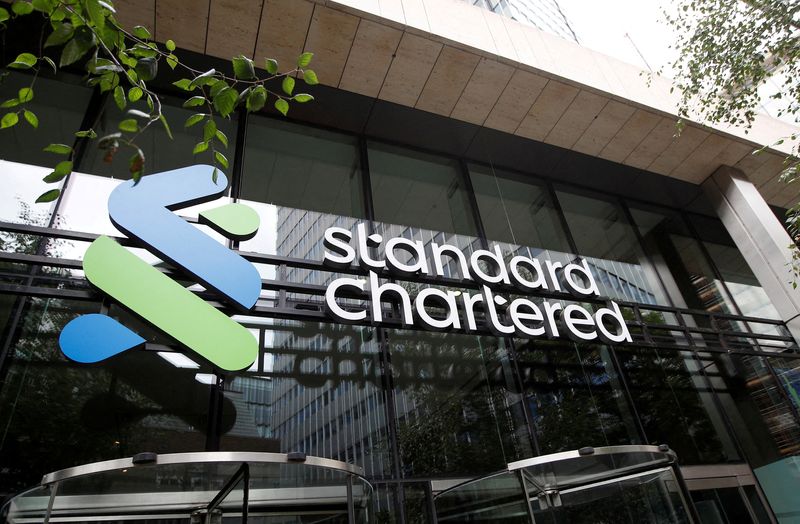LONDON (Reuters) - Standard Chartered (LON:STAN) lost its battle on Wednesday to exclude from a trial allegations it broke U.S. sanctions against Iran in a "more widespread and systematic" way than it previously admitted.
More than 200 investors are suing Standard Chartered at London's High Court for allegedly untrue or misleading statements about its sanctions non-compliance between 2007 and 2019.
They rely in part on earlier claims made in a U.S. lawsuit brought by a company called Brutus Trading, which was dismissed earlier this year on appeal.
Standard Chartered agreed to pay $1.1 billion in 2019 to U.S. and British authorities over financial transactions that violated sanctions against Iran and other countries.
The 2019 deal extended by two years a 2012 deferred prosecution agreement with Standard Chartered, under which the London-based bank paid U.S. authorities $667 million.
But the investors allege "industrial-scale sanctions non-compliance" by Standard Chartered that go beyond what the bank admitted to regulators.
Standard Chartered denies the claims and argued at a hearing in October that the allegations, which it says were investigated by U.S. authorities and found to be baseless, should be cut from the case.
But Judge Michael Green ruled on Wednesday that the investors' allegations based on the claims made by Brutus Trading should be allowed to go to trial, which is likely to be in 2026.
Graham Chapman, the lawyer for the investors, said in court filings for October's hearing that even if the most serious sanctions claims had been removed, the investors' case against the bank would still have proceeded to trial.

A Standard Chartered spokesperson said that the bank "fully complied with its reporting and disclosure obligations throughout the relevant period".
"We regard this claim as being without merit and will continue to vigorously defend the allegations as the claim proceeds to trial," the spokesperson added.